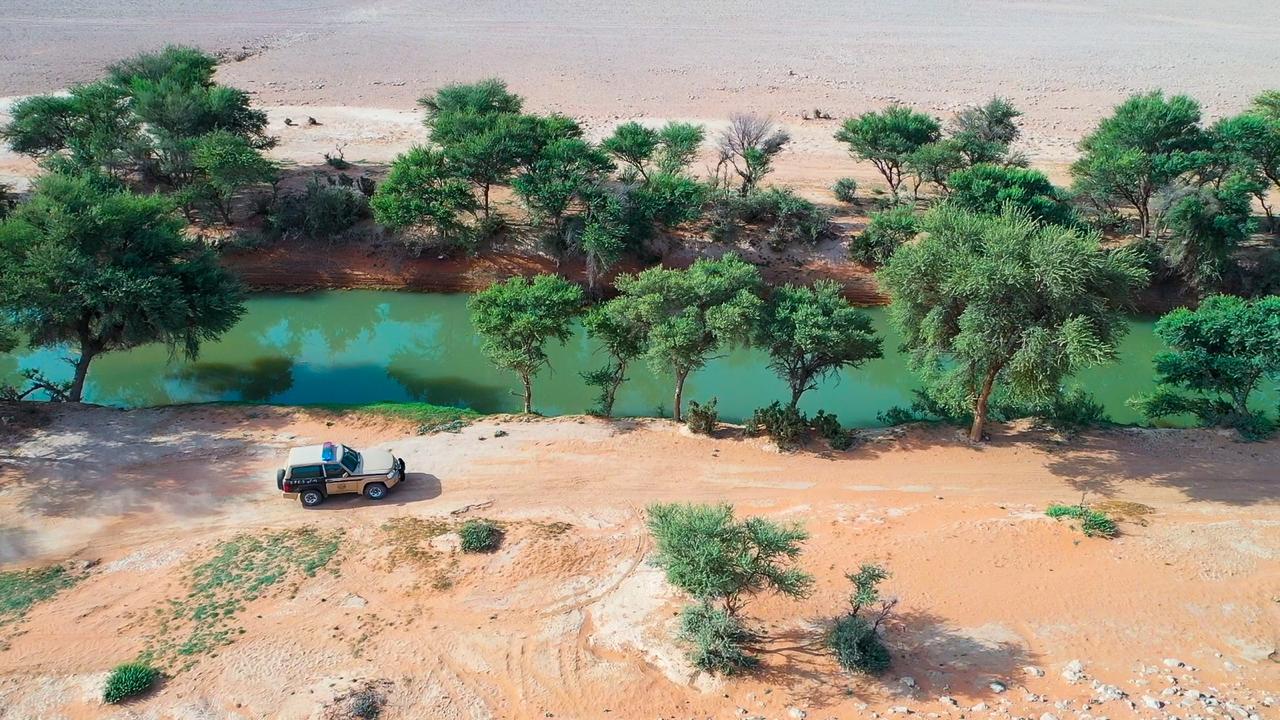It is the responsibility of oil-producing countries like Saudi Arabia to lead the way in tackling the climate crisis
Clean energy production in the Middle East doesn’t exceed seven per cent – but two new Saudi-led initiatives can help change this


Your support helps us to tell the story
From reproductive rights to climate change to Big Tech, The Independent is on the ground when the story is developing. Whether it's investigating the financials of Elon Musk's pro-Trump PAC or producing our latest documentary, 'The A Word', which shines a light on the American women fighting for reproductive rights, we know how important it is to parse out the facts from the messaging.
At such a critical moment in US history, we need reporters on the ground. Your donation allows us to keep sending journalists to speak to both sides of the story.
The Independent is trusted by Americans across the entire political spectrum. And unlike many other quality news outlets, we choose not to lock Americans out of our reporting and analysis with paywalls. We believe quality journalism should be available to everyone, paid for by those who can afford it.
Your support makes all the difference.A few days ago, Saudi Arabia’s Crown Prince Mohammed bin Salman, announced two exciting initiatives: the Saudi Green Initiative and the Middle East Green Initiative. The first seeks to plant 10 billion trees within the kingdom in the upcoming decade; the second aims to plant 40 billion trees across the Middle East. In the wake of this announcement, many phone calls were made between the Saudi leadership and leaders of other countries in the Middle East to discuss and kickstart the initiative.
What Riyadh is trying to do here is advance the world’s reforestation project, which was launched by the World Economic Forum in 2020 with the aim of planting one trillion trees worldwide by 2050. The Middle East Green Initiative will play a major role in this and includes, not only the Kingdom, but other major oil producing and exporting countries in the region, including Kuwait, Qatar, Iraq, UAE, Libya and Algeria.
It is the responsibility of these oil producing-countries, foremost among them Saudi Arabia – the world’s second biggest oil producer, a major member of OPEC and the holder of the world’s second largest oil reserves – to reduce carbon emissions and increase adoption of clean technologies by utilities. This includes making the world greener and taking quick and effective measures to protect the environment. Doing so is far more useful than relying solely on individuals to reach our goals. The responsibility must fall on state governments, especially those causing harmful emissions, as in gas and oil producing countries.
Three years ago, Saudi Arabia announced the creation of a Special Forces for environmental security, with a mission to protect the green environment, preventing tree felling for firewood and saving wild animals from extinction. At first, the initiative wasn’t taken seriously, so the government started imposing deterrent fines to drum up tangible commitments – and it worked. Today, Saudis are more concerned about illegal hunting and firewood activities. It seems to me that this initiative and the royal order to establish the council for royal natural reserves before it were taken at the right time to put a definitive end to crimes against nature and future generations.
Two months ago, I had the opportunity to visit one of these reserves, known as King Abdul Aziz Royal Reserve just outside Riyadh. On our way there, I noticed a perfect harmony between deforestation on the right side of the road and higher levels of greenery on the left. Thanks to this visit, I was able to experience the capacity of humans, governments and individuals to make a difference between yellow and green colours in one single place.
Read more:
We must also expand and protect natural vegetation as a green dam against sand and dust storms, which cause the Middle East to lose around $13bn every year, and reduce the life expectancy of its population by one year and a half, if coupled with global warming and carbon emissions.
Currently, clean energy production in the Middle East doesn’t exceed seven per cent, and that’s quite low. On several occasions, Saudi Arabia has said that it aims to generate 50 per cent of its power from renewable energy by 2050. We should see this as a courageous stand from an Arab country, which is responsible for 1.3 per cent of the global carbon emissions, followed by Egypt at 0.7 per cent.
When coronavirus began spreading early last year and countries around the globe started to impose lockdowns and curfews in March, the journal Nature Climate Change published a study suggesting that CO2 emissions have dropped by 17 per cent. But this drop didn’t last long and after easing some of the pandemic restrictions, emissions returned to their previous rates. This proves that temporary solutions are not effective. Saudi Arabia understands that and it is leading the Middle East with its new project to plant 50 billion trees – five per cent of the global goal to grow one trillion trees.
As a young Saudi citizen, I don’t just want my country to be greener, with less carbon emissions. I want the whole world to be green.
Adhwan Alahmari is editor of Independent Arabia
Join our commenting forum
Join thought-provoking conversations, follow other Independent readers and see their replies
Comments